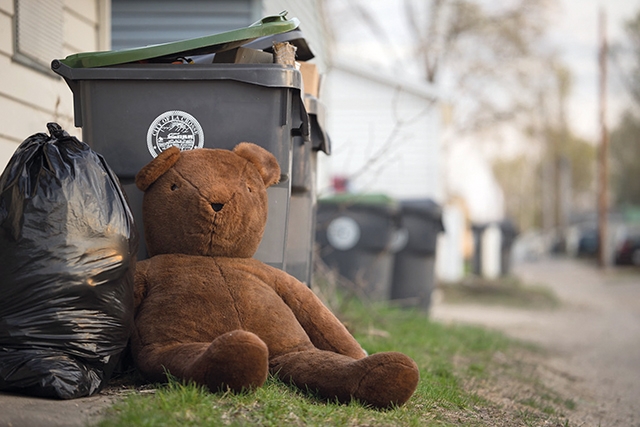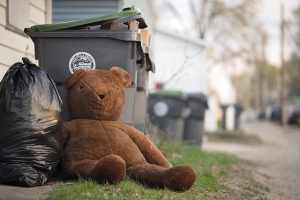Georgia to Increase Fines for Environment Pollution
Georgia will soon see increased fines for environment pollution thanks to a draft bill which has already been submitted to Parliament by authors, members of the Georgian Dream (GD) ruling party, Goga Gulordava and Sulkhan Makhatadze.
The draft law envisages doubling or more fines for dumping waste. New obligations are also coming into play for companies.
When the bill is approved by Parliament, any individual dumping up to two kilograms of waste, including cigarette butts, will be fined GEL 200 instead of GEL 100. For throwing litter fro a car or from public transport, the fine has been raised from 120 to GEL 250, while a GEL 500 fine will be imposed on individuals who dump environmental waste of more than 2 kg. Currently, for the same offense, the law envisages a GEL 150 fine. For the same pollution, legal entities will have to pay GEL 1500 instead of the current 1000.
Dumping tires will cost GEL 500, and if more than five tires are dumped, then the fine can hit up to GEL 2,000.
The fines will also be tightened for improper disposal of construction waste. Individuals will be fined 500 GEL for one cubic meter of waste, and legal entities will be fined GEL 2,000. However, the amount of waste here is significant: the maximum sanction is to be GEL 30,000 for legal entities.
Additional liabilities for companies mentioned in the draft bill require companies that generate more than 400 tons of waste to develop a waste management plan. Until now, only those companies producing more than 1,000 tons of waste had this obligation.
The bill also includes a new feature: placing animal remains in municipal waste containers will be considered as environmentally hazardous.
The fine for individuals who dump animal waste of up to 20 kg will be GEL 500, up from the current GEL 150, while for the same offense legal entities will have to pay GEL 1500 instead of the current 1000 GEL.
In case of environmental pollution of a large amount of waste (including vehicles, electrical equipment, construction equipment or other similar equipment), individuals and legal entities will be fined four times above the current amount. Physical persons will receive a fine of GEL 2000 and legal entities GEL 6000.
Persons who contaminate premises with a small amount of fecal matter belonging to a dog or other domestic animal, shall be fined 200 GEL.
Contamination of an area with fecal matter of up to 1 cubic meter or sewage waste will result in the fining of a person to the amount of 500 GEL instead of 150 GEL and a legal entity to the amount of 1500 GEL instead of the existing 500 GEL.
The authors of the draft law explain that despite penalties for specific offenses in the Waste Code, individuals and entities are still dumping different types of waste.
"It is a fact that the penalties imposed by law are not a deterrent to offenders. Despite the penalties, they still continue to contaminate the environment. The only way to stop this is by increasing the existing fines,” they said.
Environmental NGO CENN believes that increasing penalties will not work, as sanctions are still high. According to the representative of the organization Kakha Rukhaia, the problem is in enforcing the law. He notes the situation is even more difficult in the regions, where waste management is even more disorderly.
“Local government services need to up their activities. Current failings come from a lack of equipment and lack of highly qualified staff. The solution is to enforce the existing norms of legislation and to tackle the problems that hinder its enforcement,” he said.
In 2018, approximately 3200 violations were reported in the municipality of Tbilisi, of which 150 offenses were committed by legal entities.
Last year, around 3800 violations were reported in the municipality of Tbilisi, including 500 violations by legal entities.
By Tea Mariamidze
Image source: hiveminer.com












